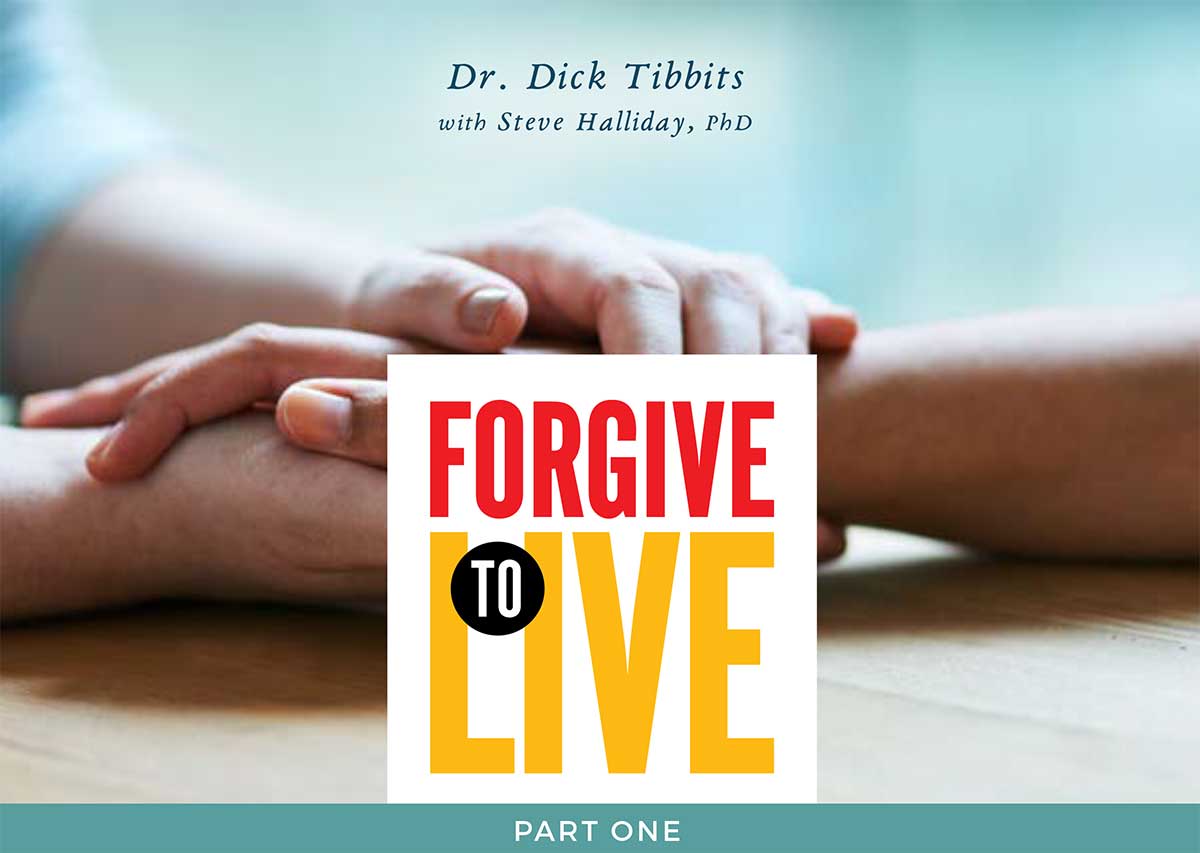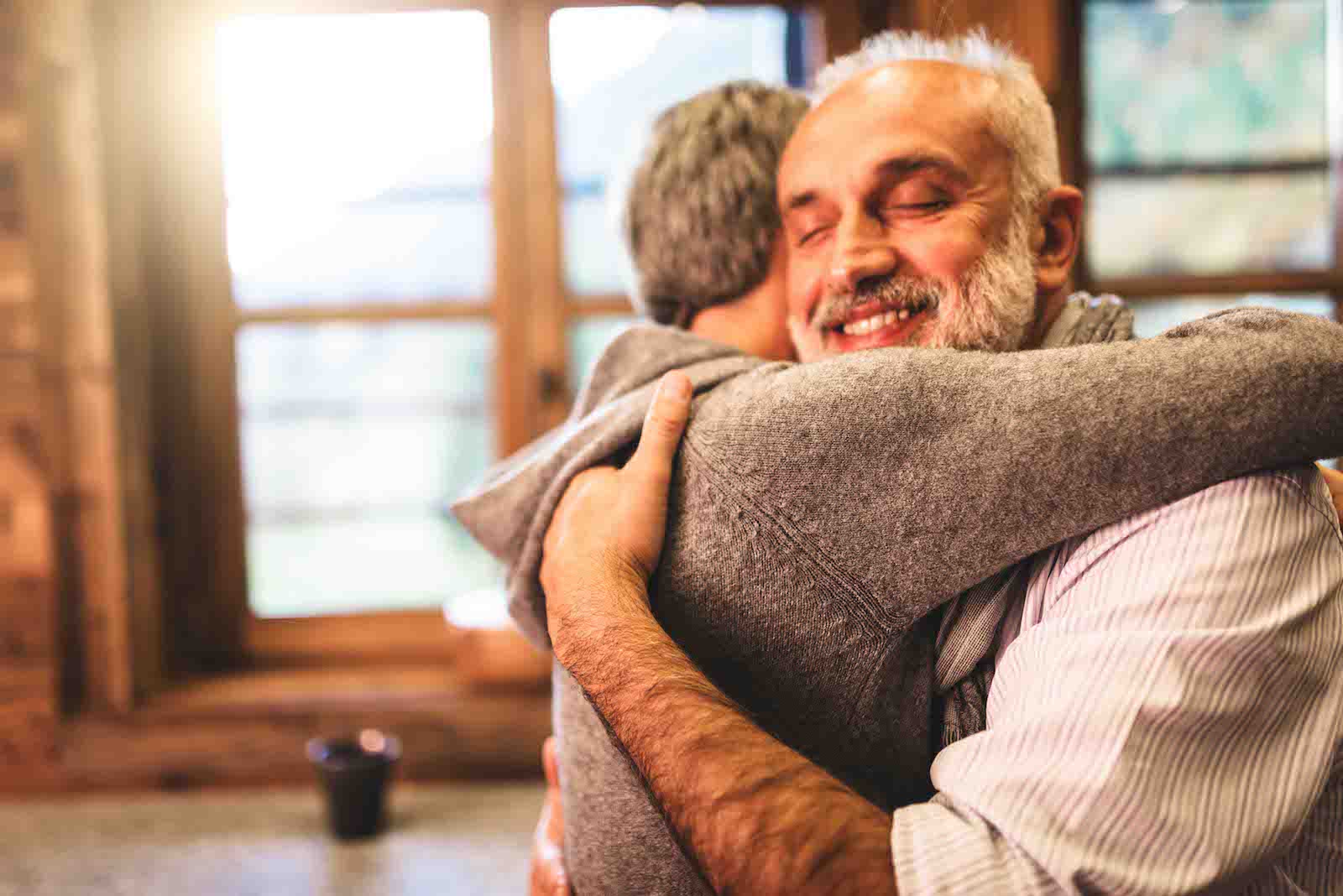
My Life is Your Fault
The Blame Game
For your Convenience
To participate in this six part series on Forgiveness you can either watch the video below, read the excellent content on this page or do both. We hope this journey is as rewarding for you as it has been for us in putting it all together.
– Hope Channel –
Robert worked tirelessly for his company. Whenever a project needed to get finished, he would stay on task until it shipped—always ahead of schedule. He consistently received stellar performance evaluations. So, as his supervisor’s retirement drew near, Robert knew he would be first in line for the job. Or so he thought.
But Robert’s supervisor wanted a friend of his to take his position when he retired, so he gave that person opportunities on the job that he withheld from Robert. This upset Robert and he exchanged words with his supervisor. As a result, Robert got placed on probation. Since company policy did not allow anyone to be promoted while on probation, Robert got passed over for the leadership position when the supervisor retired. Through no fault of his own, Robert missed out on the promotion, which went to the supervisor’s friend who had less experience than Robert.
Robert’s anger over the unfair incident soon began to take over his life. He resented his job and especially his new supervisor. Rather than working hard, Robert hardly worked. To bury his rage, Robert also started to drink heavily. As a result, he frequently missed work, something that had never happened before. Because of his absenteeism and poor work productivity, Robert got fired—and he blamed his former supervisor for his dismissal.
Rather than looking for another job, Robert sits home every day, angry that life can be so unfair. A year later, Robert’s life is in ruins. He still blames his former supervisor for all his problems.

What You Need To Know
We want to believe that life is fair. If, like Robert, we work hard, do our best each day, and produce for the company, we should get the promotion we deserve. But what happens when that promotion doesn’t come, when life turns out to be not so fair after all? How can we best respond to the hurtful things that happen to us?
It’s very hard to assure equality… Some men are killed in war, others are wounded, and some never leave the country.
– John F. Kennedy
When bad things happen in our lives, most of us respond in predictable ways:
* We try to get an apology and then feel additional hurt when the other person doesn’t respond in helpful ways.
* We then tell others of the injustice, hoping they can change the circumstances or at least empathize with my circumstances.
* Over time, our hurt turns into anger and then into resentment toward the other person.
* We start to fantasize about revenge, even though it is unlikely we will ever follow through with our plan.
* We withdraw from the person who hurt us and maybe even from life in general, all the time blaming the other person for our current circumstances.

Does Blame Work?
Blame says:
* What happened is your fault.
* Therefore, the misery in my life is your fault.
* In short, my life is your fault.
The problem is that blame doesn’t work. Like an addiction, it makes you feel better at first, but in the long run it destroys your life.
Holding people accountable for their actions is not the same as blaming them for how you feel.
When you blame someone, you are in fact giving them control over your life, or at least over your emotional life. But at some point, the issue is no longer what the other person did to you but what you are doing to yourself by holding on to the incident for as long as you have.
To stop the blame, you need to put yourself back in charge of your life and not give control to the one who already has demonstrated he or she does not care about your happiness. Blame prevents you from taking responsibility for your current circumstances (of course, you are not responsible for the original hurtful act done to you).

Reality of the Blame Game
Here is the reality: blame cannot solve problems. At best, it merely points the finger at someone else. And when you point your finger at someone else, the only possible solution to your problem is for that person to do something for you.
Blame maintains that, until that person changes, you can do nothing—and such a line of reasoning breeds helplessness. Blame is a passive response because it expects the other person to act. Do you really believe the other person will care enough to want to make your life better? How has that worked for you? It’s not a great strategy for success.
When life isn’t fair, we are left with two choices; to blame or to forgive.
Keep in mind that others act as they do because of their circumstances and how they have learned to cope with life. Their actions toward you have more to do with who they are than with what you have done. You will need to change your view of the other person as the all-powerful one over your life, and rather see this individual for who he or she really is: a person who acted poorly.
Empathy
Empathy allows you to detach from your own concerns and take the perspective of the other person’s struggles, which allows you to take less personally their actions toward you. You need to see clearly that what occurred is the other person’s issue. Not taking things so personally may even allow you to feel some compassion toward others and their life circumstances. If you were abused by someone, for example, chances are your abuser was also abused.

When you point the finger of blame at someone else, remember there are four fingers pointing back at you.
That doesn’t make their action toward you justified, of course, but it may explain their weakness. And while you may wish that they would have been strong enough to break the cycle of abuse, it may be that you will need to demonstrate the strength they failed to exercise by determining to break the cycle yourself.
When you point the finger of blame at someone else, remember there are four fingers pointing back at you.
It gets worse when you take the offense too personally. Rather than interpreting what the other person did as simply characteristic of that individual’s personality, you interpret the behavior as occurring because of something you have done. Keep in mind that people act as they do because of who they are. Usually the other person would have acted the same way, no matter who was there or what was done.
Finally, we tend to put more focus on the supposed intent of the other person— what motivated someone’s actions—than on the impact the individual’s actions had on us. This is critically important, because when I focus on motive, I will see someone who has harmed me only as an evil person with bad intentions. Why else would someone have done such a bad thing? But by doing this, I only add to my misery. We can never fully understand the motives of another person; often we do not even know our own motives.

Blame: The World in Black and White
When you blame, you see the world in “all or nothing” terms, and thus you see the other person as all bad. You have heard the expression: “Love is blind.” What does that mean? It means when you are in love, you see only the good points in the other person. You overlook the faults. Well, anger is equally as blind.
Blame’s only conclusion is that my life is your fault.
When you feel upset with someone, you see only the bad points. And if you feel upset enough, you will see nothing good in that person at all. Put simply, when you like someone, you tend to focus on that person’s good points, and when you do not like someone, you tend to focus on the bad characteristics. Your best friend can become your worst enemy simply by what you choose to focus on. In fact, many times that is exactly what happens. And here is the paradox: your worst enemy is someone else’s best friend. Go figure!
The truth is that we are all a mixture of good and bad. This world will always have some bad, of course, but if you allow that unpleasant fact to paralyze you, then you will spend the rest of your life immobilised, unable to deal with painful situations.
Don’t waste your energy trying to understand why the other person did what he or she did. It is far better to share with the other person how his or her actions affected you. Explain in concise language what you expect and how that contrasts with what occurred. If the person cares about you, he or she will either correct the hurtful actions, or through mutual dialogue, you will come up with an alternative approach that will work for both of you. If the other person does not care about you, he or she will have no interest in correcting hurtful actions to meet your needs.

Lowering Your Expectations
Another effective way to break the cycle of disappointment over another’s actions toward you is to lower your expectations. The less you expect of someone, the less you feel disappointed when the person does something, or fails to do something, toward you. Learning to accept the following three truths will help you to lower your expectations:
1. People make mistakes.
2. People will do what they want to do.
3. People do not have to do what I want them to do.
Forgiveness asserts that an offense that has spoiled your past will not ruin your present or destroy your future. When you feel as though you are the only one going through a terrible ordeal, it can help to give thanks that you are not going through something even worse. Look around; you can always find someone who is suffering more than you. Be thankful that no matter what problems you face, they could be worse.
When a harmful act has been committed against you, how do you typically respond?
* Blame the person who has harmed you?
* Determine to get even with the person who has harmed you?
* Try to ignore the person who has harmed you?
* Forgive the person who has harmed you?
How you respond is your choice . . . a choice that will make all the difference in your life. Forgiveness is always the better option for healing your life! Are you ready to forgive so you can live life to its fullest?

Forgiveness does not balance the scales of justice any more then vengeance does. But it will keep your past from destroying your future.
Learning a Different Approach
Clearly, forgiveness offers you a different approach to life. While blame focuses on the hurt of the past and wishes life could be better, forgiveness teaches you to accept what you cannot change. It gives you the opportunity to move ahead despite the pain of your past. Know, however, that forgiveness will take time, and it requires some difficult work today.

Tapping into the Power of Forgiveness
To understand where you are in your forgiveness journey, take the forgiveness inventory below. Keep in mind that forgiveness is a journey. As you learn new ways of forgiving, you can come back to this site to better understand where you currently are in your journey. This understanding allows you to determine the next steps you will need to take. While these steps are not necessarily sequential, for most people they generally follow the pathway of forgiveness.